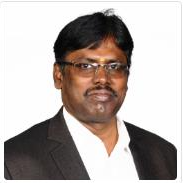International Journal of Image, Graphics and Signal Processing (IJIGSP)
IJIGSP Vol. 14, No. 1, 8 Feb. 2022
Cover page and Table of Contents: PDF (size: 1859KB)
Optimized Low Power Dual Edge Triggered Flip-flop with Speed Enhancement
Full Text (PDF, 1859KB), PP.50-63
Views: 0 Downloads: 0
Author(s)
Index Terms
Dual Edge Triggered (DET), DETFFs (double-edge-triggered flip-flops), Dual Edge Triggered Static Pulsed flip-flop (DETSPFF), Static output Controlled Discharge Flip-flop (SCDFF), FF (Flip-Flop), Single Edge Triggered (SET), Sense Amplifier (SA), VLSI
Abstract
This paper gives a novel low-power approach with pulse generating circuits using dual edge triggered flip-flops. By doing so, flip-flop might operate at 1.2Volts, with the novel quick latch and conditional precharging. This paper aims at a new proposed low power dual edge triggered flip-flop with speed enhancement to achieve low power consumption with a shorter delay in power usage, hence, it is well suited for low-power digital system applications. The new proposed low power dual edge triggered flip-flop also aims at comparison with the three DETFF, Static Output Controlled Discharge Flip-Flop (SCDFF), Dual Edge Triggered Static Pulsed Flip-flop (DETSPFF), and Pervious work on Dual Edge Triggered flip-flop, proves to achieves with reduction in numbers of transistors in the stack and increases the number of charge-paths results in a faster operational speed. According to simulation on Spectre simulator, it has been observed that total power consumption of proposed flip flop at 0.67 switching activity is 30.16 % and 27.36 % less than that of previous arts DSPFF and SCDFF respectively. Clock-gated sense-amplifier is incorporated to reduce power consumption at low switching activity. The simulation is done using Cadence tool with 45nm standard CMOS technology.
Cite This Paper
Shilpa K.C, Lakshminarayana C, " Optimized Low Power Dual Edge Triggered Flip-flop with Speed Enhancement", International Journal of Image, Graphics and Signal Processing(IJIGSP), Vol.14, No.1, pp. 50-63, 2022. DOI: 10.5815/ijigsp.2022.01.05
Reference
[1] Fa Lin,“Low-power pulse-Triggered Flip-Flop Design Based on a Signal Feed Through”,IEEE Transactions on Very Large Scale Integration(VLSI) Systems, Vol. 22, No. 1, January 2014.
[2] Yin-Tsung Hwang, Jin-Fa Lin and Ming-Hwa Sheu, “Low power pulse triggered flip flop design with conditional pulse enhancement scheme. IEEE Trans. Very Large Scale Integr. (VLSI) Syst., vol. 20, no. 2, pp. 361–366, Feb. 2012.
[3] Alioto, E. Consoli, and G. Palumbo,“Analysis and comparison in the energy-delay-area domain of nanometer CMOS flip-flops: Part II -results and figures of merit”,IEEE Trans. Very Large Scale Integr. (VLSI) Syst., vol. 19, no. 5, pp. 737–750 , May 2011
[4] Ke-Horng Chen, “Power Management Techniques for Integrated Circuit Design”, John Wiley & Sons Singapore Pte.Ltd., First Edition, ISBN:9781118896815.
[5] Nedovic et al , “Novel dual edge triggered flip-flop”, International symposium on low power electronics and design.
[6] Nitin Kumar Saini, “Low Power Dual Edge Triggered Flip-Flop”, International Conference on Signal Propagation and Computer Technology (ICSPCT),July2014
[7] Wai Chung, Timothy Lo, and Manoj Sachdev, “A Comparative Analysis of Low-Power Low-Voltage Dual-Edge-Triggered Flip- Flops”,IEEE Transactions on Very Large Scale Integration (VLSI) Systems, Vol. 10, No. 6, pp. 913-918,2002.
[8] Nikola Nedovic, Marko Aleksic, Vojin G. Oklobdzija, “Conditional Precharge Techniques for Power-Efficient Dual-Edge Clocking”, International Symp. Low Power Electronics Design (ISPLED 2002), pp. 56-59, 2002
[9] M. Pedram, Q. Wu, and X. Wu.(1998).A New Design of Double Edge Triggered FlipFlops.Proceedings of the Asian and South Pacific Design Automation Conference (ASPDAC'98), pp. 417-421, 1998.
[10] Y. T. Liu, L. Y. Chiou, and S. J. Chang, “ Energy-Efficient Adaptive Clocking Dual Edge Sense Amplifier Flip-Flop”, IEEE International Symposium Circuits Systems (ISCAS), pp. 4329–4332, 2006.
[11] Myint Wai Phyu, Kangkang Fu, Wang Ling Goh, Kiat-Seng Yeo, “ Power Efficient Explicit Pulsed Dual Edge Triggered Sense Amplifi-er Flip-Flops”, IEEE Transactions on Very Large Scale Integration (VLSI) Systems, Vol. 19, No. 1, pp. 1-9, 2011.
[12] Pawan Whig, Syed Naseem Ahmad,"Performance Analysis of Various Readout Circuits for Monitoring Quality of Water Using Analog Integrated Circuits", International Journal of Intelligent Systems and Applications, vol.4, no.11, pp.91-98, 2012.
[13] Souleymane KOUSSOUBE, Roger NOUSSI, Balira O. KONFE,"Using Description Logics to specify a Document Synthesis System", International Journal of Intelligent Systems and Applications, vol.5, no.3, pp.13-22, 2013.
[14] Mohd Asyraf Mansor, Mohd Shareduwan M. Kasihmuddin, Saratha Sathasivam,"VLSI Circuit Configuration Using Satisfiability Logic in Hopfield Network", International Journal of Intelligent Systems and Applications, Vol.8, No.9, pp.22-29, 2016.
[15] Manisha B S, Rudraswamy S B,"VLSI Implementation of CMOS Full Adders with Low Leakage Power", International Journal of Computer Network and Information Security, Vol.10, No.4, pp.20-27, 2018.

